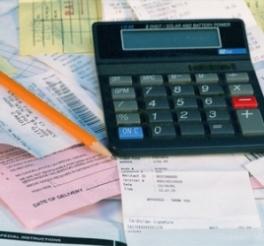Schroders has predicted that VAT will rise to 19 per cent next January regardless of who wins the election; a scenario that Charity Tax Group says would cost the charity sector tens of millions of pounds.
In the same week that the Institute for Fiscal Studies has issued a damning indictment of the failure of all three political parties to tell the public the truth about the painful spending cuts that must follow the election, Schroders’ European economist Azad Zangana has pointed out that neither Labour nor the Conservatives have ruled out increasing VAT.
At a general election breakfast briefing today chaired by former Sky News business editor Michael Wilson, Zangana said: “We believe that raising VAT from its current rate of 17.5 per cent to 19 per cent would make not only a significant contribution to the black hole in the government’s budget forecast, but would also be the most efficient way of collecting revenues quickly.”
“As a result, we expect VAT to be raised to 19 per cent after the general election.” (See Schroders' calculation below).
Zangana expected the hike would be announced immediately but not implemented until January next year, a year after VAT was reinstated at 17.5 per cent. This would allow time for a temporary boost in demand for goods and services for the rest of this year and would avoid distorting the year-on-year measure.
There would be no effect on the Consumer Price Index for 2010, but Schroders has raised its CPI forecast for 2011 from 2.2 per cent to 2.8 per cent.
Serious consequences for charities
But such a rise could have serious consequences for the voluntary sector - VAT hikes hit charities disproportionately hard because they cannot recover it all, as their private sector competitors can.
Charity Tax Group carries out an ongoing survey of member charities, asking them to calculate the impact of certain scenarios, and a recent response from 60 large charities suggested that raising VAT to 19 per cent would cost them a total of just under £15m in additional irrecoverable VAT.
Aggregating this across the whole sector would put the total cost significantly higher, said CTG’s Mathieu Mori.
Mori urged more charities to complete the survey in order to gauge an even more accurate picture of the potential cost to the sector.
Mori added that CTG would strongly urge the government to take the charity situation into account if it did propose increasing VAT.
|
Schroders European economist Azad Zangana explains how the company arrived at the 19 per cent figure: “At the Budget the Treasury assumption was that public sector net borrowing would be £166bn for 2009/10, and that the government planned to cut it to £74bn by 2014/15. This amounts to an overall reduction of £92bn over the five years. |









